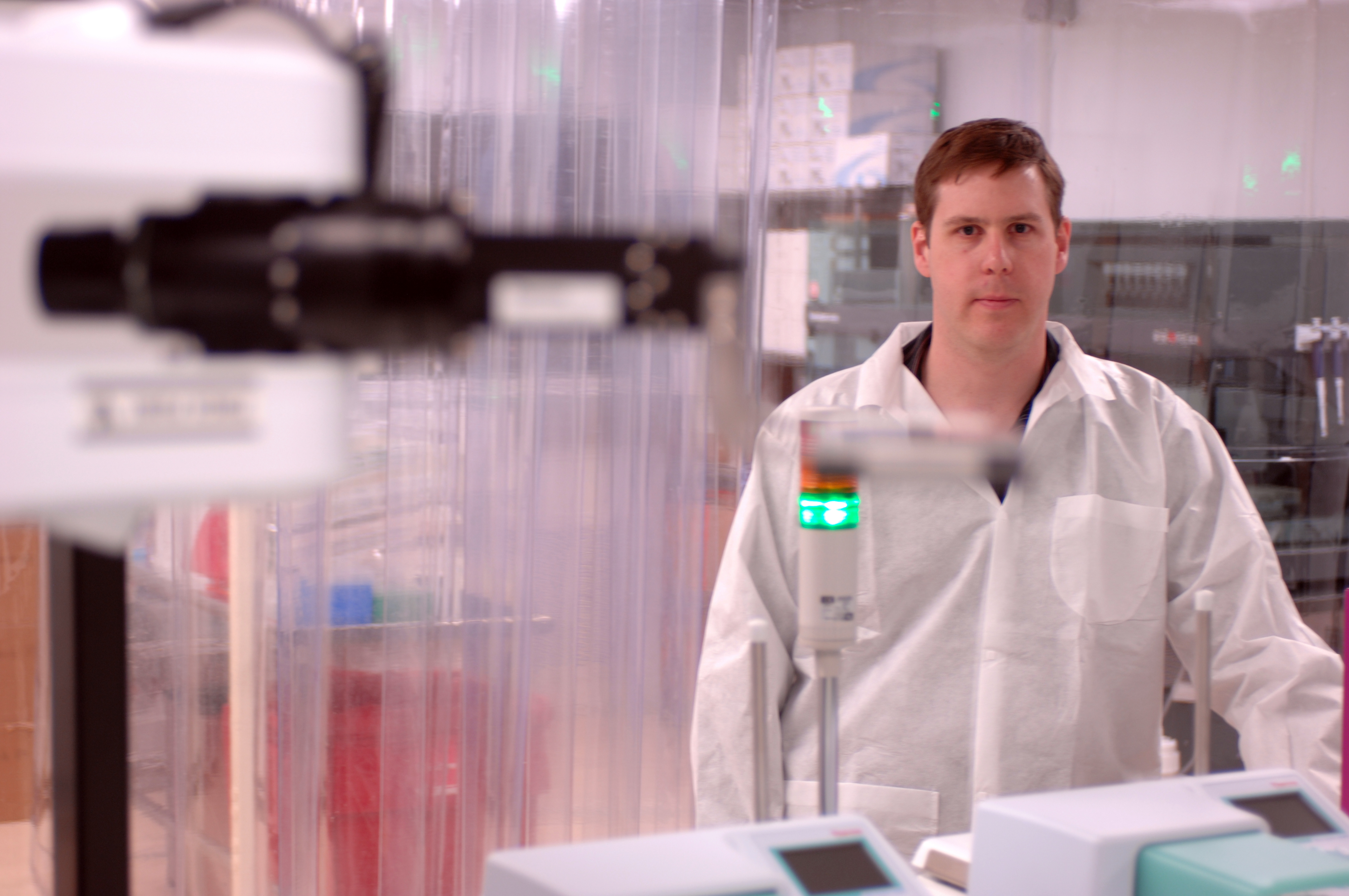Systems biology research funded with $18 million in grants
By John Eastonjohn.easton@uchospitals.edu
Medical Center Communications
 Kevin White | |
The National Institute of General Medical Sciences, part of the National Institutes of Health, has awarded more than $15 million over five years to the University to support the new Chicago Center for Systems Biology.
Researchers will study how networks of genes work together to enable cells and organisms to respond to environmental and genetic change.
The center also represents collaboration among researchers at Chicago-area universities— University of Illinois at Chicago, Northwestern University and Chicago—fostered by the Chicago Biomedical Consortium, with support from The Searle Funds at The Chicago Community Trust. The consortium will provide an additional $3 million over three years to the new initiative.
One of 10 National Centers for Systems Biology and the only such center in Illinois, the Chicago Center for Systems Biology will combine experimental and computational tools to study the dynamic behavior of gene networks in cells, tissues and organisms.
A focus on the connections between multiple levels of biological organization—from networks of molecules to whole organisms—distinguishes the emerging field of systems biology.
By integrating mountains of data from multiple levels in an environmental and evolutionary context, systems biology has the potential to explain the behavior of the system as a whole. It will help scientists understand and treat human diseases by uncovering how genes, cells and tissues respond to natural and artificial stimuli.
The new center will concentrate on transcriptional networks, clusters of the master genes that regulate the activity of other genes by directly turning them on or off.
“Our goal is to understand the principles that transcriptional regulatory networks share as they respond to different types of environmental and genetic variation,” said Kevin White, Director of the Chicago Center for Systems Biology and the James and Karen Frank Family Professor in Human Genetics and Ecology & Evolution.
“To do that,” he said, “we have brought together from around the city more than a dozen experts in genomics, developmental biology, evolutionary biology, stress and physiology, chemistry and physics, with several computational specialists who focus on network modeling and high-performance computing.”
The Chicago team was well positioned to compete for this prestigious research award. It has nationally recognized programs in evolutionary biology and genetics, a reputation for collaborative research, and the ability to combine theoretical and computational studies with laboratory investigation.
White, a pioneer in the study of gene regulation during development and evolution, is one of the first scientists to design genome-scale experiments and apply them to genetics and evolution. He quickly established the Institute for Genomic & Systems Biology at the University and Argonne National Laboratory, which will take a leadership role in this new project.
White has worked with the Chicago Biomedical Consortium since he joined the Chicago faculty in 2006. He established the Cellular Screening Center at the Institute for Genomic & Systems Biology with a $1 million CBC Recruitment Resources Award.
The additional $3 million in funding of the Lever Award from the Chicago Biomedical Consortium will enable key initiatives to be developed for the benefit of not only the Center for Systems Biology but also the larger Chicago research community, including the establishment of imaging, transgenic and computational facilities.
CBC funding also will support training the next generation of young scientists in the art of interdisciplinary research through the new Research Fellows Program in Systems Biology.
“The Chicago Center for Systems Biology provides a unique opportunity to promote interdisciplinary scientific investigation and education in Chicago,” White said. “This is an ambitious project, but one with enormous potential. We propose to go beyond mapping genetic networks to develop testable computer models of the behavior of transcriptional regulatory networks during physiological stress, during cellular and organismal development, and during the evolution of species.
“These principles,” he said, “are expected to reveal structure-function relationships in networks that lead to physiological and evolutionary robustness or, its complements, flexibility and change.
“The crux of this research is that once we understand how stability is maintained in the face of environmental or genetic change, we will then be in a position to intelligently manipulate the core cellular processes that give cells their identity and contribute to disease when they break down.”
![[Chronicle]](/images/sidebar_header_oct06.gif)